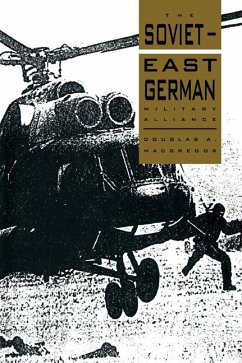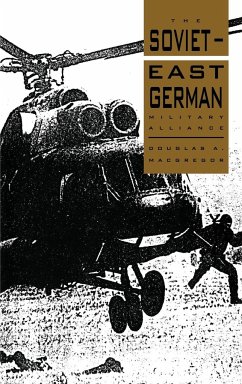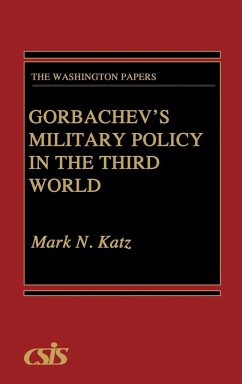
The Military Committee of the North Atlantic Alliance
A Study of Structure and Strategy
Versandkostenfrei!
Versandfertig in 1-2 Wochen
88,99 €
inkl. MwSt.

PAYBACK Punkte
44 °P sammeln!
Focusing on the Military Committee of the North Atlantic Alliance and its role in shaping NATO, this book examines the development in Western societies of structures for Allied civil-military relationships and their influence on Western alliance since 1914. As Bland states in his introduction, The need for a Military Committee composed of national Chiefs of Defense was recognized during the early discussions of NATO organizations. However, the concept approved in September 1949 by Foreign Ministers has not been subject to much analysis since that date. As the Military Committee is composed of ...
Focusing on the Military Committee of the North Atlantic Alliance and its role in shaping NATO, this book examines the development in Western societies of structures for Allied civil-military relationships and their influence on Western alliance since 1914. As Bland states in his introduction, The need for a Military Committee composed of national Chiefs of Defense was recognized during the early discussions of NATO organizations. However, the concept approved in September 1949 by Foreign Ministers has not been subject to much analysis since that date. As the Military Committee is composed of the chiefs of defense of most NATO nations, it represents a powerful influence on the NATO policy process. Filling the void of information on the Military Committee, this book undertakes the difficult task of measuring the Committee's influence in the policy processes of NATO. Concluding with recommendations for the reorganization and Europeanization of NATO's military structure, including the disbandment of Allied Command Europe and the office of SACEUR in favor of a regional European structure, this book challenges the appropriateness of the present military structure of NATO. This conclusion is linked to the idea that America should reduce its commitments to Europe and that they should be taken over by Europeans. Bland addresses and challenges current suggestions about how such a devolution of responsibilities should take place. Students and scholars of military studies, military officers, and officials who study and work in the North Atlantic Alliance, will find this book a source of new insight and valuable information.














